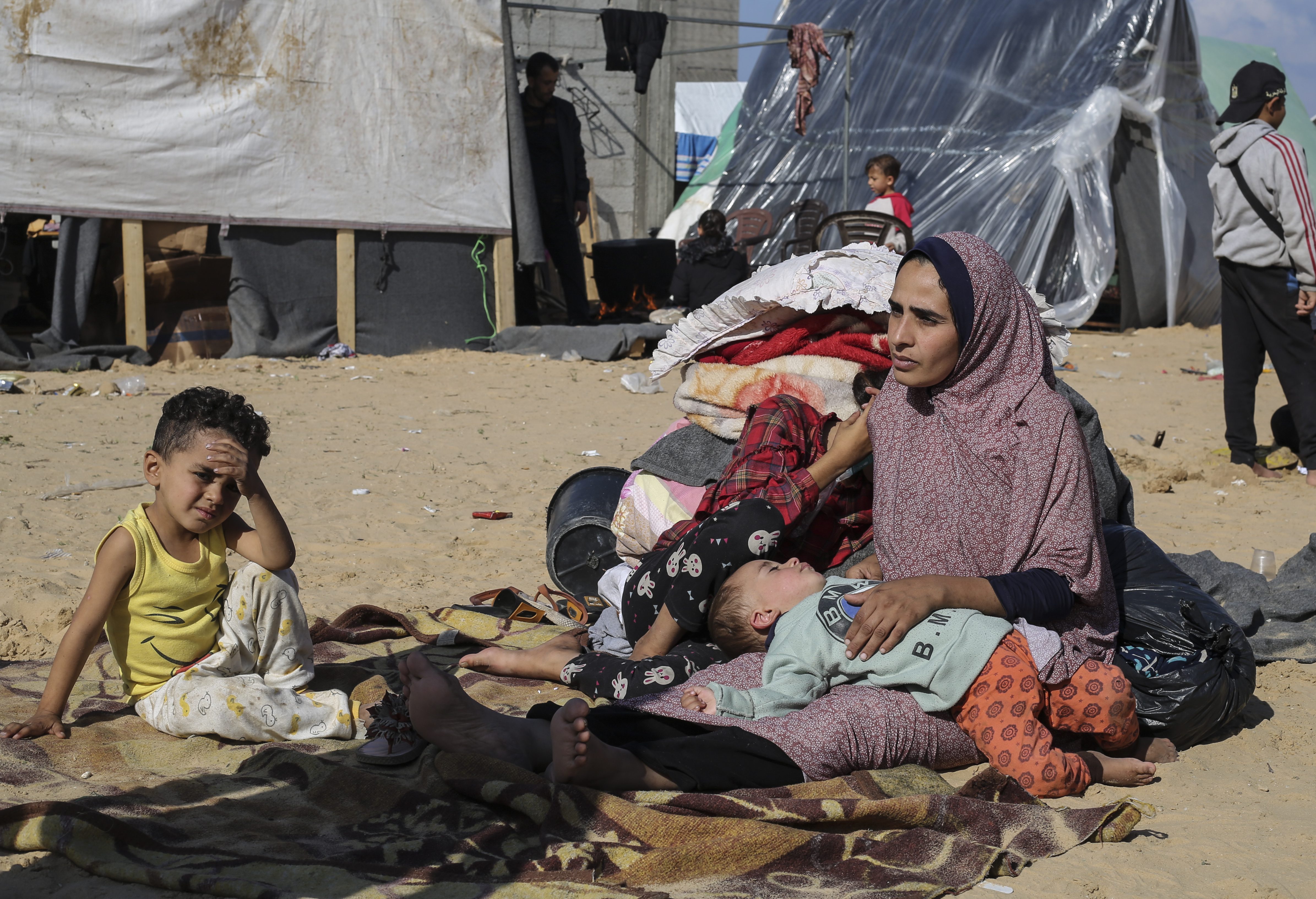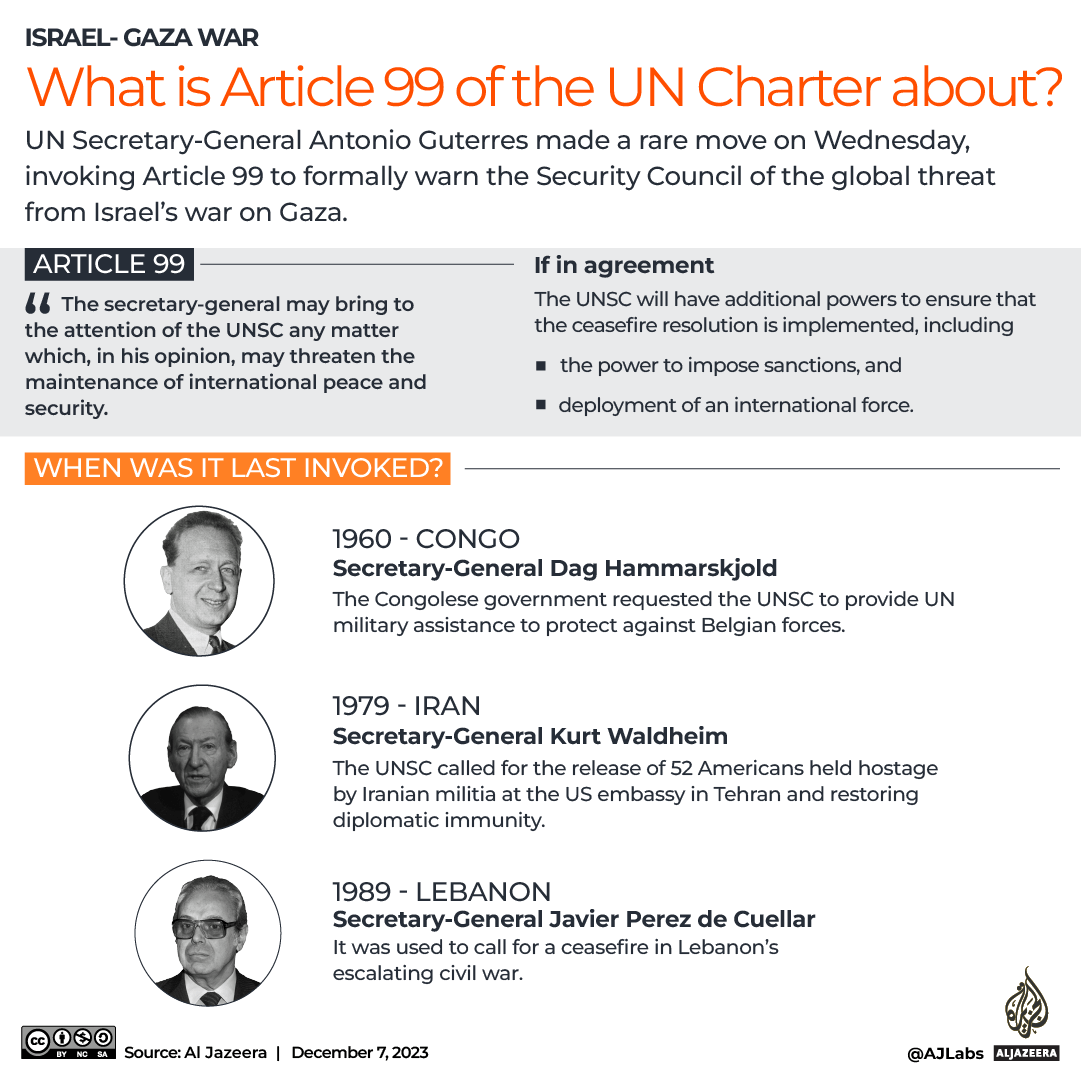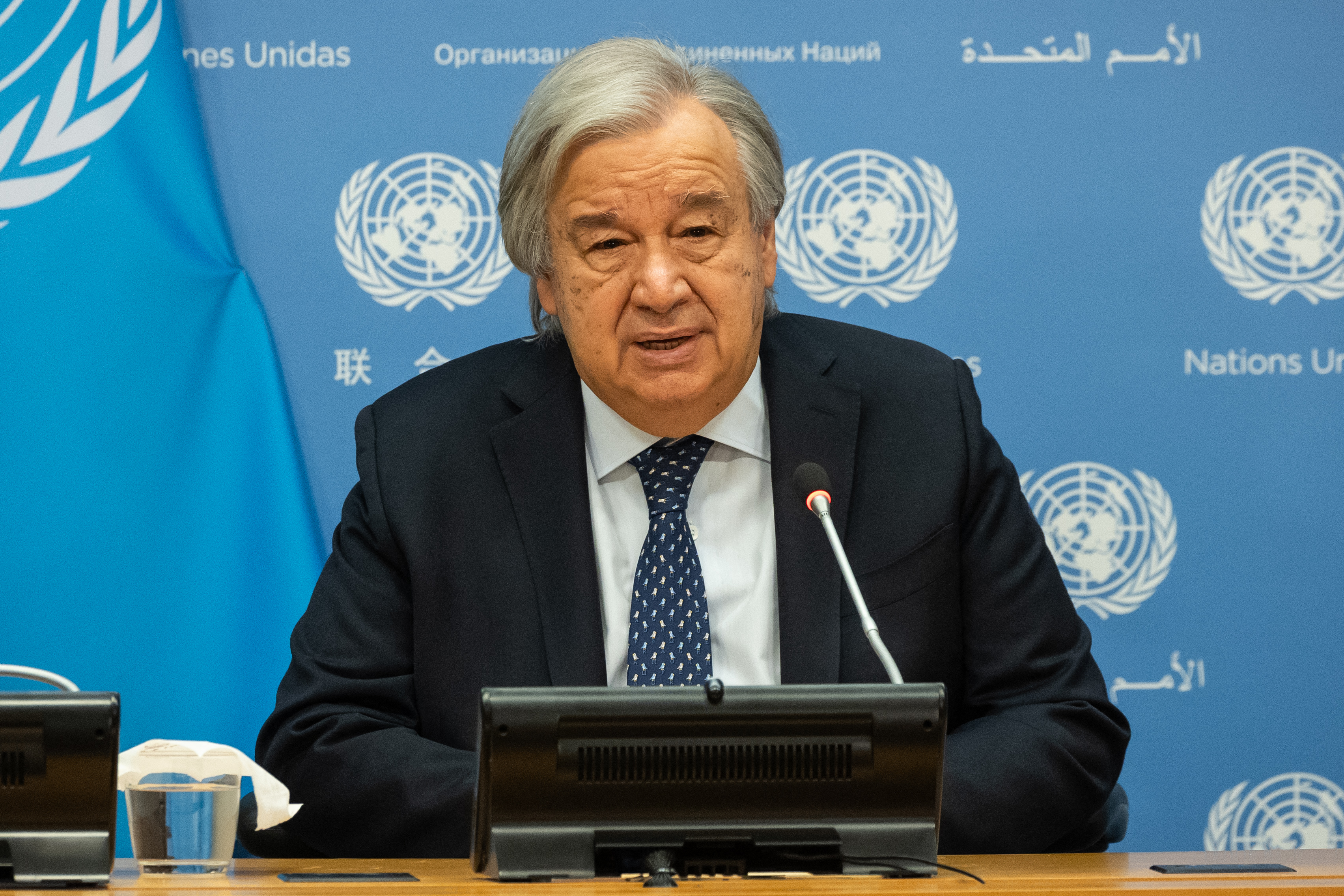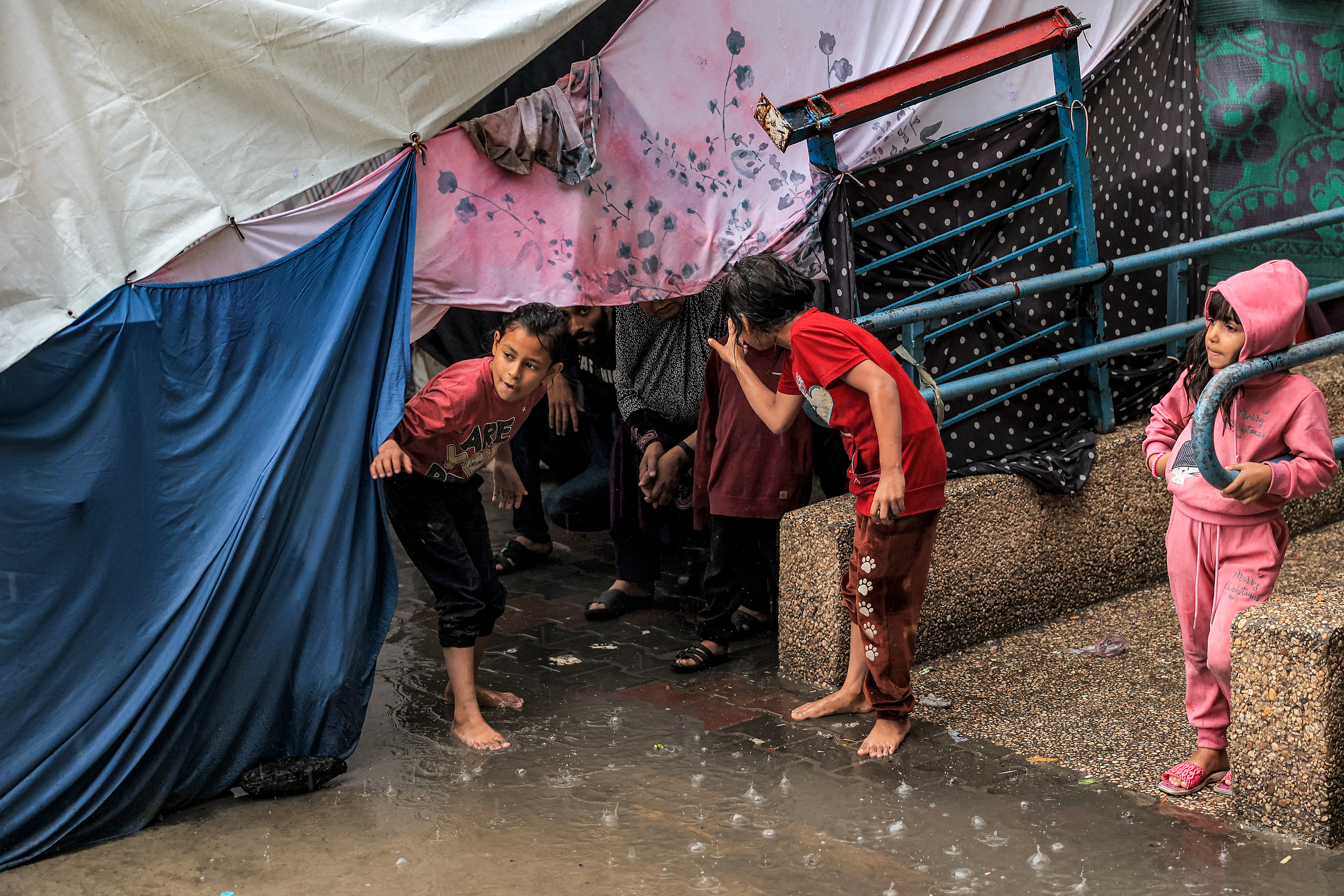
United Nations Secretary-General Antonio Guterres has invoked Article 99 of the UN Charter, in a rare move on Wednesday aimed at formally warning the Security Council of the global threat from Israel’s war on Gaza.
Guterres has been calling for an “immediate humanitarian ceasefire” since October 18. But the Security Council is yet to adopt a resolution calling for a ceasefire, amid differences between permanent members. The United States, Israel’s chief backer, has vetoed a resolution, while Russia, more critical of Israel, has blocked another one.
But what is Article 99 and does it have any real power to stop this war?

What is Article 99?
It’s a special power, and the only independent political tool given to the secretary-general in the UN Charter. It allows him to call a meeting of the Security Council on his own initiative to issue warnings about new threats to international peace and security and matters that are not yet on the council’s agenda.
In Article 99, the charter states, “the Secretary General may bring to the attention of the Security Council any matter which in his opinion may threaten the maintenance of international peace and security”.
Now Guterres will have the right to speak at the Security Council, without having to be invited to speak by a member state, as is usually the case.

Why has Guterres invoked it?
In a letter to the Security Council released on Wednesday, Guterres said the Security Council’s continued lack of action and the sharp deterioration of the situation in Gaza had compelled him to invoke Article 99 for the first time since he took on the top job at the UN in 2017.
At least 16,248 Palestinians in Gaza are dead and a further 7,600 missing.
He warned public order in Gaza could soon break down amid the complete collapse of the humanitarian system, and that there was no effective protection of civilians and that “nowhere is safe in Gaza”.
“The situation is fast deteriorating into a catastrophe with potentially irreversible implications for Palestinians as a whole and for peace and security in the region,” he wrote.
Can Article 99 end the conflict?
Considered the UN’s most powerful body, the 15-member Security Council is tasked with maintaining international peace and security. If it chooses to act on Guterres’s advice and adopt a ceasefire resolution then yes. It will have additional powers at its disposal to ensure the resolution is implemented, including the power to impose sanctions or authorise the deployment of an international force.
But it doesn’t give Guterres any powers to force the Security Council to adopt a resolution.
Anthony Arend, a professor of government and foreign service at Georgetown University, told Al Jazeera: “He can force a discussion, he can bring the parties together and encourage them to reach some kind of compromise. But because of the veto at the Security Council, the only way the Security Council can adopt a substantive resolution on this issue is for each of the five permanent members to choose not to veto it.”

China, Russia, the US, the UK and France – hold this veto power.
The US used their veto on October 18 against a resolution that would have condemned Hamas’s attack on Israel while calling for a pause in the fighting to allow humanitarian assistance into Gaza. Twelve other council members voted in favour, while Russia and the UK abstained.
When has it been invoked in the past?
It’s only been invoked four times in the past — in the Congo (1960), East Pakistan (1971), Iran (1979) and Lebanon (1989).
- July 1960: Congo — Then Secretary-General Dag Hammarskjold requested an urgent meeting with the council on “a matter which, in my opinion, may threaten international peace and security”, after the Congolese government requested the UN provide military assistance to protect against Belgian forces.
- December 1971, East Pakistan — On Wednesday, UN Spokesperson Stephane Dujarric referred to the time when then Secretary-General U Thant cited Article 99 to seek the Security Council’s intervention in the war in what was then known as East Pakistan, and is now Bangladesh. It is unclear whether U Thant’s reference to Article 99 represented a full invocation of the rule.
- December 1979, Iran — Austrian diplomat Kurt Waldheim, as secretary-general in the late 1970s, used Article 99 on December 4, 1979 when 52 Americans were held hostage by Iranian fighters at the US Embassy in Tehran after the Islamic Revolution in Iran.
- August 1989, Lebanon — Secretary-General Javier Perez de Cuellar used it to call for a ceasefire in Lebanon’s escalating civil war.
The article was initially designed as a preventative tool, a bit like a warning system. Its use was meant to deter conflicts from escalating, but as in the war on Gaza, the article has also been used after conflicts had already escalated.
“The fact that this tool has not been used since 1989 does resonate diplomatically and symbolically here in New York,” Daniel Forti, a senior analyst on UN advocacy and research at the International Crisis Group, told Al Jazeera.
Has it brought peace before?
The use of Article 99 has had mixed results in the past, though it has never really brought peace.
That’s because the secretary-general’s intervention does not “fundamentally change the political calculation of the Security Council’s most powerful members”, Forti said.
In 1960, for instance, the invocation of the article led to the Security Council adopting Resolution 143, calling for Belgium to begin troop withdrawal. It also sent UN peacekeeping forces to facilitate this. But the Congolese war continued, Prime Minister Patrice Lumumba was assassinated, and the country’s crisis would deepen in the years that followed.
The Security Council similarly called for the release of American hostages in 1979, and Waldheim was authorised to “take all appropriate measures” to make that happen. But the hostages were held for 444 days, with two killed. The rest were released only after the Algiers Accords were signed in 1981.
The Security Council also called on all sides in Lebanon to work towards a ceasefire in 1989, after Article 99 was last used. But the conflict continued.
In the case of the current conflict, the US has so far firmly opposed a ceasefire resolution at the Security Council, and there is little evidence that Washington’s position has changed.
How has Israel responded?
Israel’s ambassador to the UN, Gilad Erdan, did not welcome the move. In a post on X, Erdan described the letter as “more proof” of Guterres’s “moral distortion and his bias against Israel”.
“The secretary-general’s call for a ceasefire is actually a call to keep Hamas’s reign of terror in Gaza,” said Erdan, who also repeated his call for Guterres to resign.







